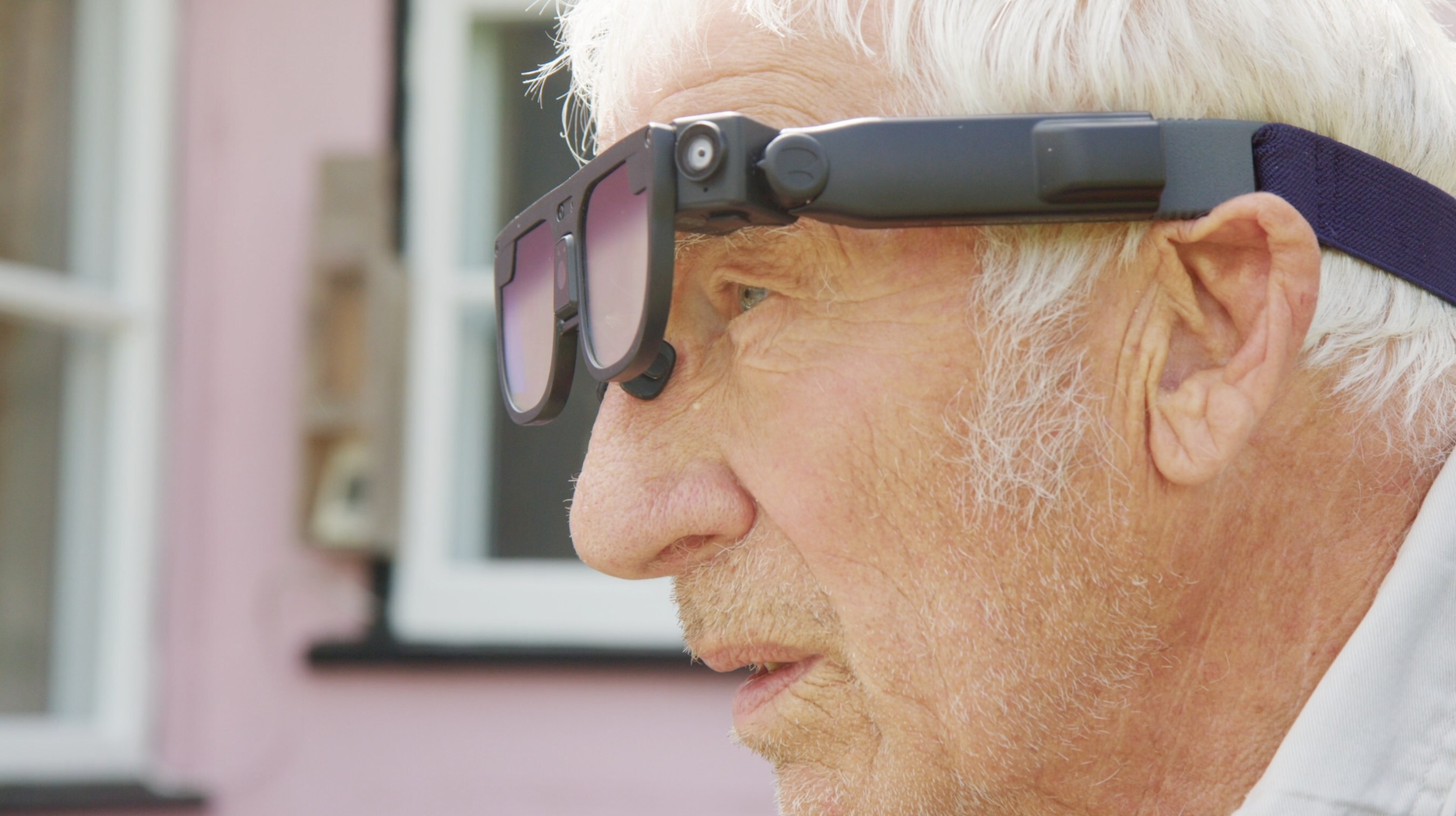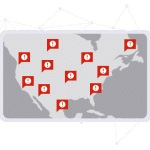- Austin, Texas-based Clairvoyant Networks, is using soccer Ultra Wideband sensor technology to predict and prevent falls for the dementia community.
- The Longitude Prize on Dementia is driving the creation of AI-based assistive technologies that can help people living with dementia maintain their independence longer.
- The finalists were selected by an international panel of judges, informed by people with lived experience of dementia including a North American representative from Voices of Alzheimer's.
LONDON and AUSTIN, Texas, Oct. 8, 2024 -- Adults with dementia and their caregivers are now able to detect and predict harmful falls using the same advanced Ultra Wideband technology that World Cup Soccer uses to map how a soccer ball moves around the field thanks to Austin-based Clairvoyant Networks, Inc., one of five groundbreaking technologies to be named a finalist and awarded £300,000 ($400,000) in the £4.4m ($5.8m) Longitude Prize on Dementia.
The Longitude Prize on Dementia is rewarding the creation of new assistive technologies that use AI to transform how people live with dementia after a diagnosis so that they can maintain their independence for as long as possible.
Theora® 360, uses advanced artificial intelligence (AI), neural networks and Ultra Wideband (UWB) technology – the same technology used to map how a soccer ball moves around the field - to establish when falls are likely to happen and ultimately prevent them. This situational awareness tech, in the form of a smartwatch system designed specifically for older people, could anticipate changes at certain points in a daily routine or anomalies in certain locations (for example, before bed or in the bathroom) to predict harmful falls that can lead to hospitalization, disability and even death. UWB provides pinpoint accuracy in fall detection and prediction in addition to also being secure and privacy respecting.
Nearly 7 million Americans are estimated to be living with Alzheimer's. By 2050, this number is projected to rise to nearly 13 million.
The global challenge prize is funded by Britain's Alzheimer's Society and Innovate UK and is delivered by Challenge Works – a global expert in innovation challenge prizes. Clairvoyant Networks, makers of Theora® Care, is the only U.S. team to have progressed to the final in the international competition. All teams will now develop their solutions in pursuit of the £1m ($1.3m) first prize to be awarded in 2026.
"We know that people living with dementia are more likely to fall than their peers and so it made sense to focus on a solution that could help to accurately detect and also predict falls, which goes beyond other detection-only, post-fall awareness systems", says Stephen Popovich, CEO of Clairvoyant Networks. "Not only will Theora®360 increase the independence of the person living with dementia to stay longer in their homes, but also important is the peace of mind that family members have knowing how their loved one is doing even when they cannot be there with them 24/7."
Jay Reinstein, vice chair of the Longitude Prize on Dementia's Lived Experience Advisory Panel and on the Board of Directors of Voices of Alzheimer's said: "Purpose-built technology should be an essential part of the toolkit when it comes to dementia. Adaptive and accessible solutions that have been created alongside people with lived experience of the disease, such as these finalist innovations, will help to promote independence and create more vibrant, more fulfilled lives for people living with dementia. This announcement will undoubtedly ignite hope for millions across America."
The five finalists announced today will each receive £300,000 ($400,000) to develop their technologies in the next 15 months. The other four finalists are:
- High-tech glasses that help users recognize objects and people – the technology helps people living with dementia to recognize objects and people and remember what to say or do to improve memory recall (CrossSense, Animorph, UK).
- A smartwatch-based app to provide guidance on daily routines – this AI software processes data from a smartwatch and home sensors to learn about its users' activities and gently guide them on their routines through personalized cues (AUTONOMOUS, Associação Fraunhofer Portugal Research, Portugal).
- At-home monitoring-box that protects privacy – this 'sensor' box and automated messaging system scans rooms to help remotely inform family members of the loved one's wellbeing via Whatsapp or text (Supersense Technologies, UK).
- Home assistance device resembling a traditional telephone – this familiar-looking device offers a screen for video calls which can also display personalized reminders of daily activities. The phone connects users to a reassuring voice-recording that prompts on daily activities (MemoryAid, The MARCS Institute, Western Sydney University, Australia).
Kate Lee, CEO, Alzheimer's Society in the UK said: "AI presents exciting opportunities to help those with dementia stay active and independent, enabling them to remain in their own homes for as long as possible. The five finalists of the Longitude Prize on Dementia are tackling these challenges in innovative and diverse ways. I look forward to seeing how their technologies evolve."
Tris Dyson, Managing Director, Challenge Works said: "Challenge prizes are open innovation competitions to solve the biggest problems of our time. They attract diverse approaches from talented innovators around the world, creating a level playing field for bold ideas to thrive. From 175 entries from 28 countries, 24 semi-finalists developed multiple technologies in the last 12-months. Our five finalists are now on a path to developing solutions that I believe will have a positive and lasting impact for people living with dementia very soon."
In addition to the financial reward, non-financial support has been funded to provide innovators with crucial insight and expertise until the end of 2025. The support includes access to potential product users, mentorship, and expert advice on technical and business aspects of the innovation to ensure products are scalable. It will also facilitate knowledge sharing between participants. All teams will be working with people with lived experience to ensure solutions are fully co-created.
In early 2026, one winner will receive a prize of £1 million ($1.3 million), following a judging process with the international Judging Panel and Lived Experience Advisory Panel. For more information on the finalists and prize, please visit dementia.longitudeprize.org
This News is brought to you by Qube Mark, your trusted source for the latest updates and insights in marketing technology. Stay tuned for more groundbreaking innovations in the world of technology.









